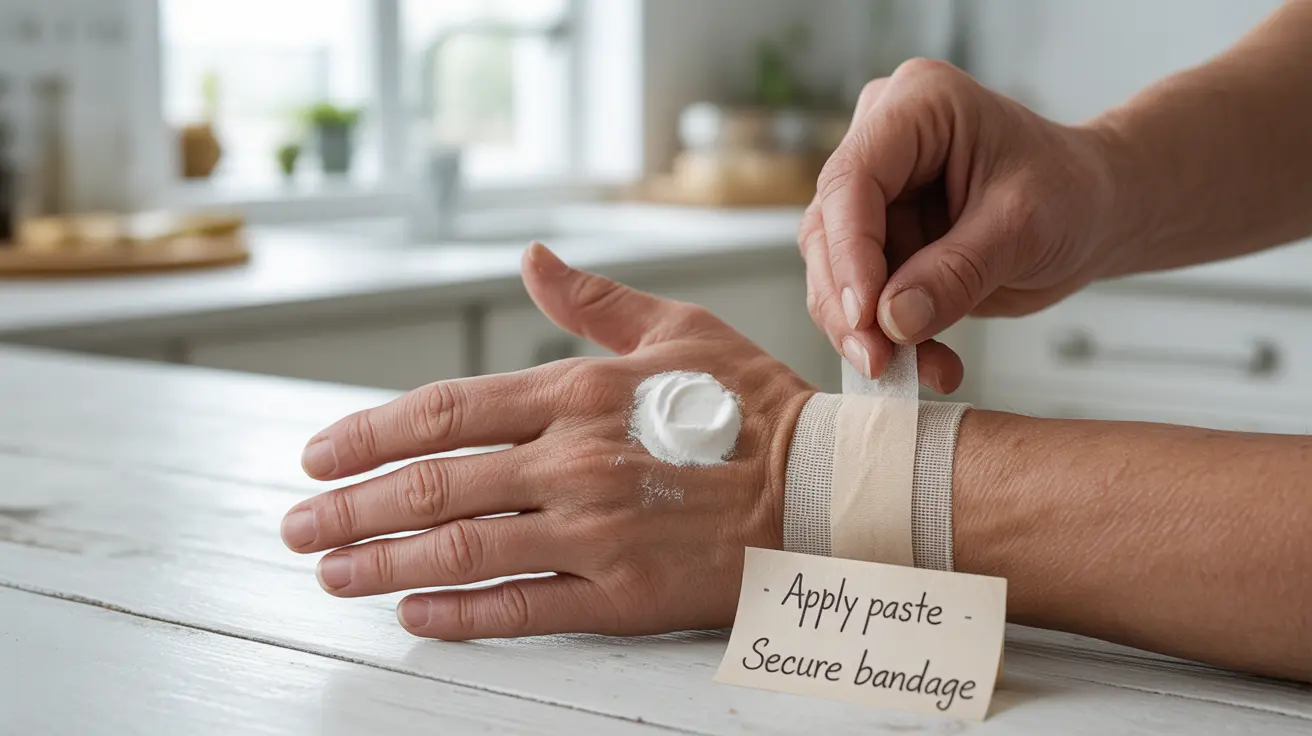Getting a deep splinter can be both painful and concerning, especially when it's not easily accessible with tweezers. While this common injury might seem minor, proper removal is essential to prevent infection and promote healing. Understanding how to draw out a deep splinter safely can help you handle this situation effectively at home.
This comprehensive guide will explore various proven methods for removing deep splinters, with a special focus on using common household items and when to seek professional medical attention.
Understanding Deep Splinters and Their Risks
A deep splinter occurs when a foreign object, usually wood, metal, or glass, becomes embedded beneath the skin's surface. These can be particularly challenging to remove and may pose potential health risks if not addressed properly.
The longer a splinter remains under the skin, the greater the risk of infection and tissue inflammation. Additionally, some materials can break down over time, making removal more difficult and increasing the chance of complications.
Using Baking Soda for Splinter Removal
Baking soda is one of the most effective natural methods for drawing out deep splinters. This common household ingredient works by causing the skin to swell slightly, which helps push the splinter toward the surface.
Step-by-Step Baking Soda Method
- Clean the affected area thoroughly with soap and water
- Create a thick paste using baking soda and a few drops of water
- Apply the paste directly over the splinter
- Cover with a bandage and leave for 24 hours
- Remove the bandage and check if the splinter has surfaced
- Gently remove the splinter with clean tweezers if visible
Alternative Home Remedies for Splinter Removal
Several other household items can be effective for drawing out deep splinters:
White Glue Method
- Apply a thin layer of white glue over the splinter
- Allow it to dry completely
- Peel off carefully, which may pull the splinter out with it
Warm Water Soak
- Soak the affected area in warm water for 10-15 minutes
- This softens the skin and may help the splinter work its way out
- Add Epsom salt to enhance the drawing effect
Proper Aftercare and Infection Prevention
After successful splinter removal, proper wound care is crucial to prevent infection:
- Clean the area thoroughly with antiseptic solution
- Apply antibiotic ointment if needed
- Cover with a clean bandage
- Monitor the area for signs of infection
- Change the bandage daily until healed
When to Seek Medical Help
While many splinters can be safely removed at home, certain situations require professional medical attention:
- The splinter is deeply embedded
- There are signs of infection (redness, swelling, warmth, or pus)
- The splinter is large or made of harmful materials
- Home removal attempts have been unsuccessful
- The wound is on a sensitive area or near an eye
Frequently Asked Questions
How does baking soda help draw out a deep splinter from the skin?
Baking soda creates an osmotic effect that causes mild swelling of the skin tissue, naturally pushing the splinter toward the surface. It also helps soften the skin, making the splinter easier to remove.
What is the step-by-step process for using baking soda to remove a deep splinter safely?
First, clean the area with soap and water. Mix baking soda with a few drops of water to create a paste. Apply this paste directly over the splinter, cover with a bandage, and wait 24 hours. After this time, the splinter should be closer to the surface for easier removal.
What are the best aftercare practices to prevent infection after splinter removal?
Clean the area with antiseptic solution, apply antibiotic ointment if needed, and cover with a sterile bandage. Change the bandage daily and monitor for signs of infection. Keep the area clean and dry during healing.
What are some other effective home remedies besides baking soda to draw out a deep splinter?
Effective alternatives include white glue, warm water soaks with Epsom salt, honey, and drawing salves. Each method works differently, but all aim to either soften the skin or draw the splinter toward the surface.
When should I see a doctor for a deep or infected splinter instead of trying home removal methods?
Seek medical attention if the splinter is deeply embedded, shows signs of infection, is made of hazardous materials, or if home removal attempts have failed. Also consult a healthcare provider if the splinter is near sensitive areas like eyes or if you have underlying health conditions.




